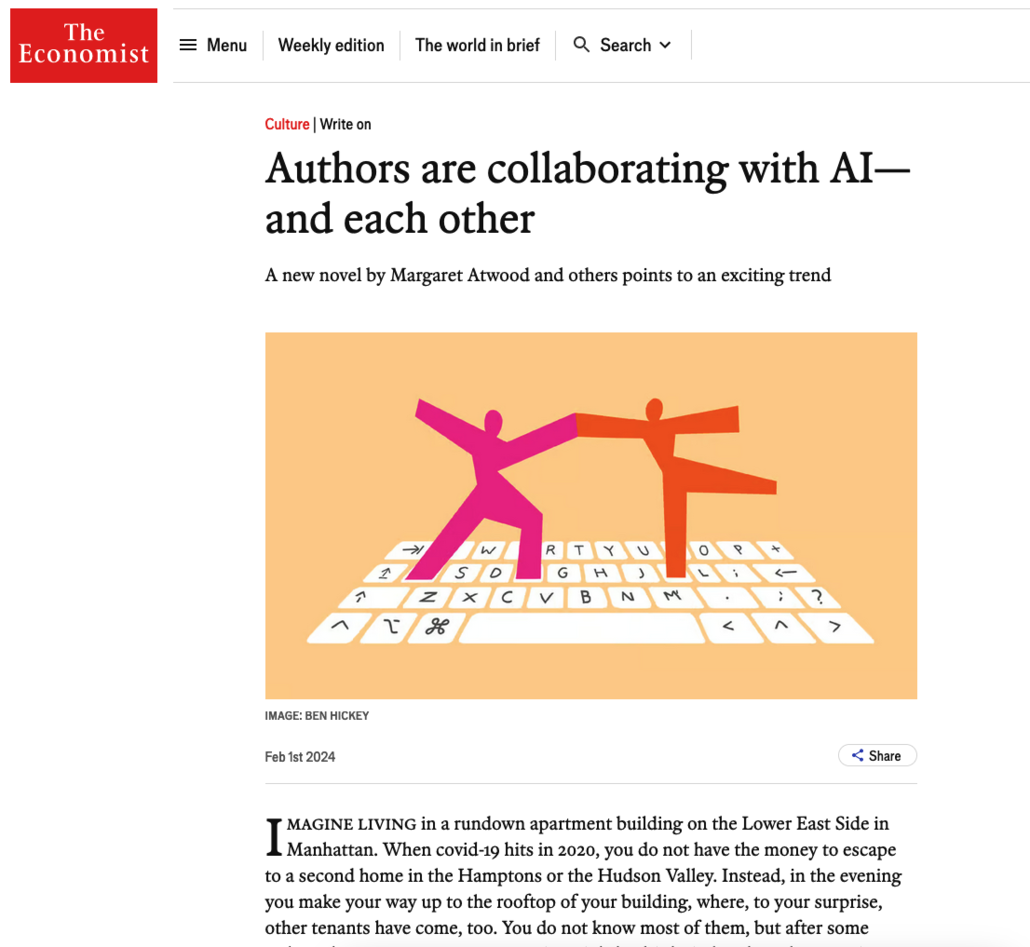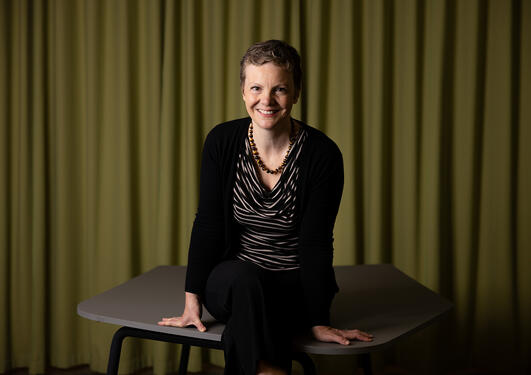The Economist on "Cyborg authorship" and collective writing
Professor Scott Rettberg comments on collaborating with machines in literature.

Main content
Some quotes from the article, Authors are collaborating with AI—and each other:
"There is a rich history of collaboration in writing. Just think of the Bible or the "Kalevala", a Finnish epic, which were both written by many hands. Homer, if he was in fact a single person, probably synthesised bits of oral poetry for his "Iliad" and "Odyssey". In the Renaissance plays had many authors, who often added new characters as they saw fit. Only after the invention of the printing press in the mid-15th century did books became a business. Single-author books proved easier to market, and the “myth of the solitary author” established itself, says Scott Rettberg, who leads the Centre for Digital Narrative at the University of Bergen in Norway.
In the 20th century collective authorship made something of a comeback. In the 1960s the idea re-emerged for all sorts of reasons, including as a counteroffensive against cultural conventions. In 1969 two dozen journalists wrote "Naked Came the Stranger", a deliberately terrible book poking fun at American literary standards. (It became a surprise bestseller.) In the 1990s new technological possibilities prompted writers to work together—or, more accurately, to link to each other. A noted example is "Hypertext Hotel", a collaborative writing space built online in 1991 by Robert Coover, an American experimental novelist, which uses a spatial metaphor to weave stories together."
AI adds more to the mix
"Generative AI will add more to the mix. It is not just that the algorithms powering services like ChatGPT are themselves collective works of sorts (trained on huge amounts of text scraped from the internet). Such models are also conversational machines, which can suggest phrases, give feedback and answer questions. “Cyborg authorship” is what Mr Rettberg of the University of Bergen calls this.
He already has more than one tech-supported writing project under his belt (and recently co-curated an exhibition of books written with the help of AI at the University of California, Berkeley, called "More Than Meets AI"). He published a book jointly with colleagues, in which ChatGPT is invoked togenerate reviews of famous works in the style of well-known authors—think Jane Austen writing about William Burroughs’s "Naked Lunch"."
"And AI is not yet fully accepted in literary circles. Recently Kudan Rie, thewinner of Japan’s top prize for literature, admitted she used ChatGPT to write around 5% of her science-fiction novel "Tokyo Sympathy Tower". Such candidness is rare. Most would never admit to using AI. A new sort of "ghostwriting" may be having a moment, but many writers will never want to name ChatGPT as their co-author."
See also Scott Rettbergs presentation on cyborg authorship at the Institute of English studies at the University of Warszaw:

